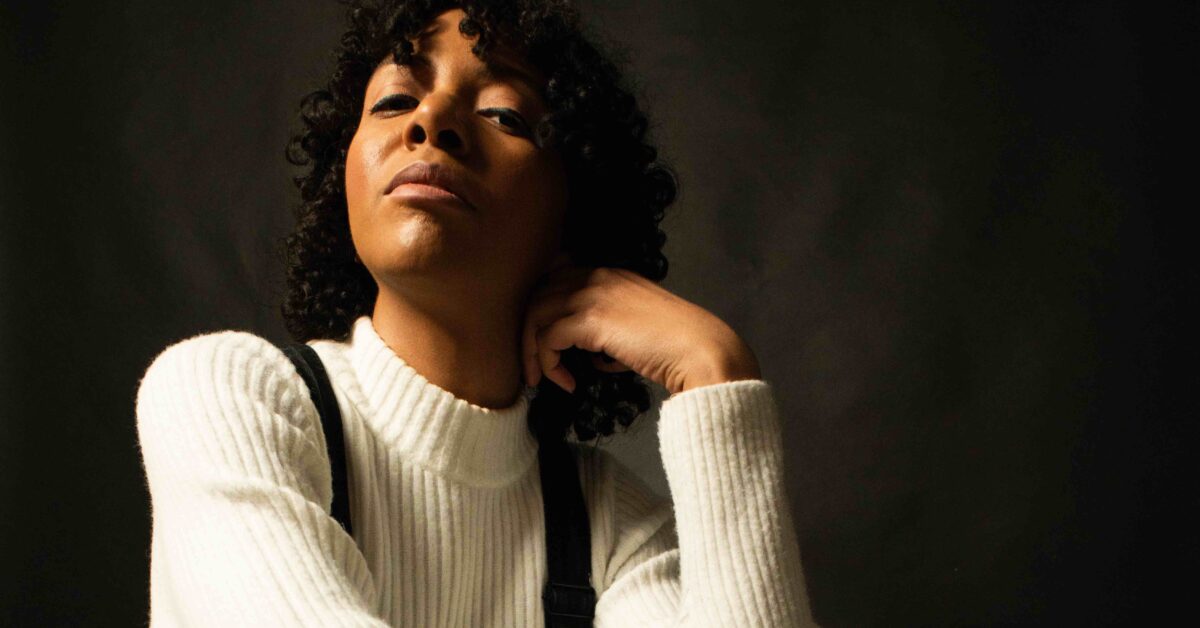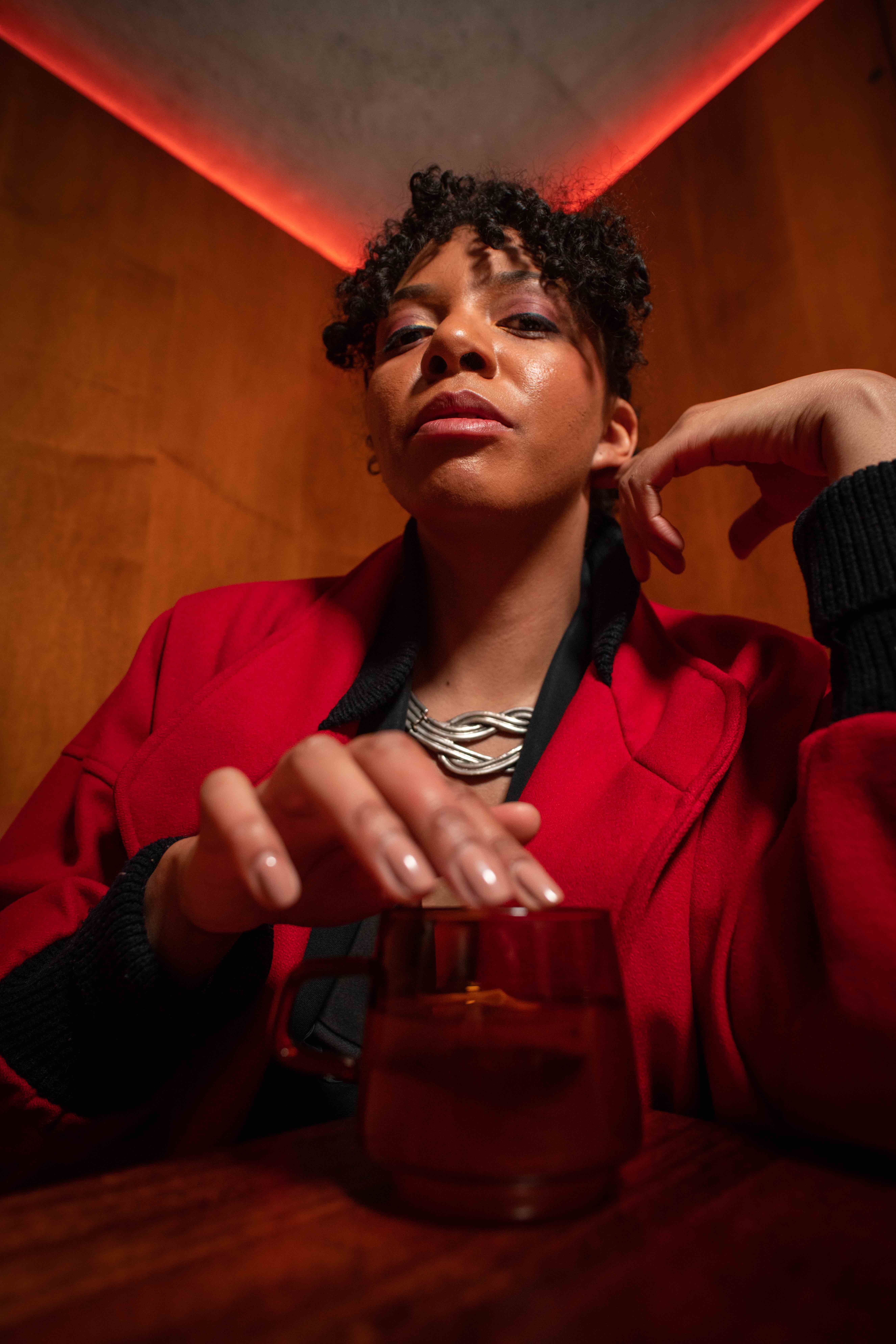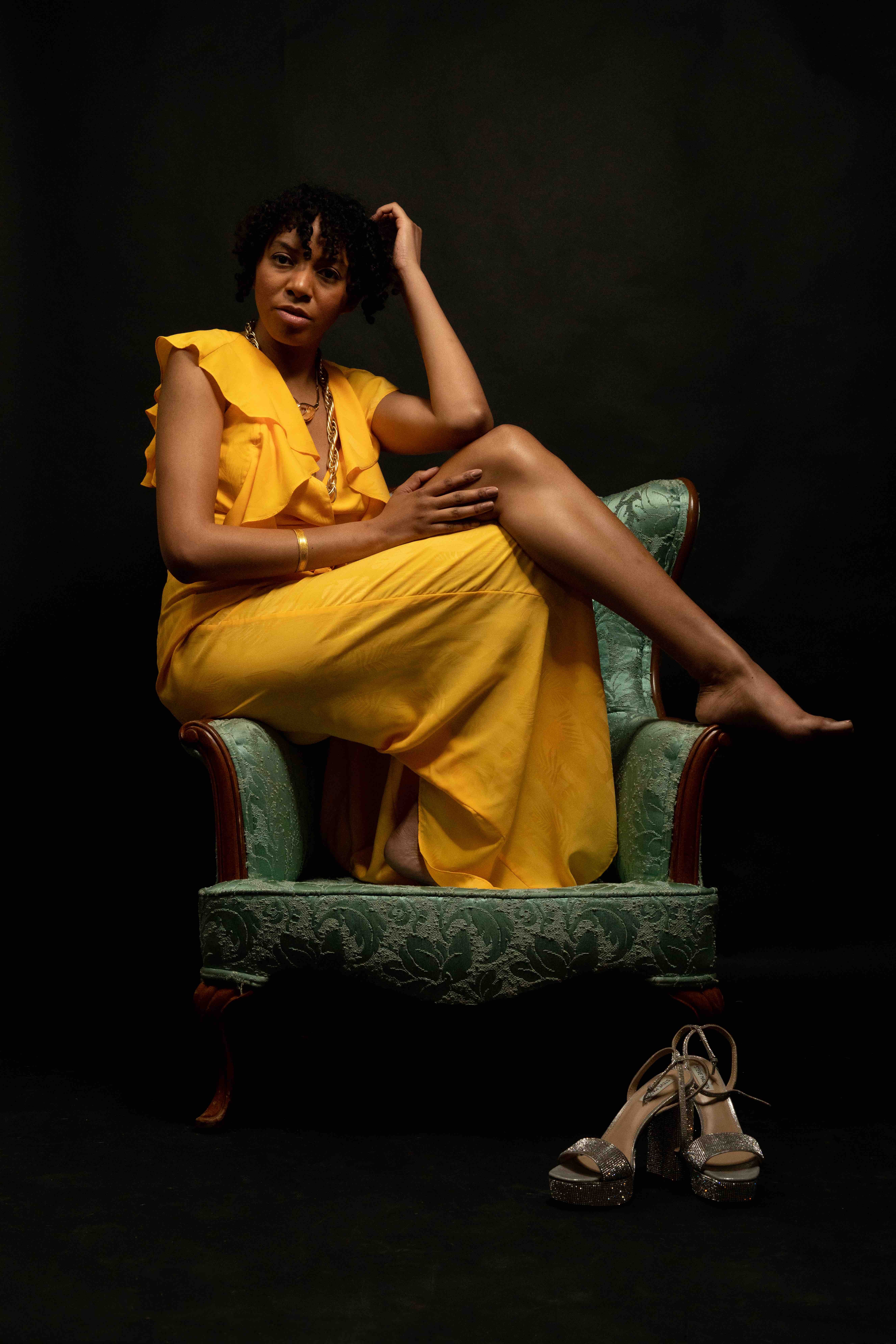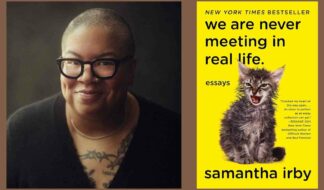How Grief and Love Drive Ferndale Pride Headliner DJ Holographic's Proudly Femme Sound
The Detroit DJ draws inspirations from Prince and David Bowie

At the heart of Ferndale Pride performer Ariel Corley’s approach to music is love. That’s both unconditional love for herself and the love she feels radiating from other LGBTQ+ musicians — the kind of love you're likely to hear from her set during the opening day of the forthcoming Movement Music Festival in Hart Plaza.
In fact, Corley’s first inspiration to pursue music as a house, techno and disco DJ and producer — in Detroit, Corley is better known as DJ Holographic — came from witnessing the strength of the trans community through watching Octo Octa, a trans house producer and DJ, perform at Marble Bar in Detroit with her partner, Eris Drew. She was struck by the power of their own self-love during the performance.
“They were falling in love with each other, falling in love with their music, and then falling in love with themselves again and again on stage,” Corley says “They were so in love while also going through their story of transitioning, and it was why I started to love music and made it my life.”
As she spoke with me from her hotel room in São Paulo, Brazil, just before playing the Time Warp Brasil festival that night, I could feel this love emanating through the phone.
“When I have unconditional love for myself, it can flow into others and into my external world,” she says. “I want people to be able to fall in love with themselves, and I wish for them to receive it.”
That love will radiate when Corley plays Ferndale Pride's dance stage, an event that is near and dear to her heart, at 8 p.m. June 1. She first attended Ferndale Pride at 18 as a teenager, when she and her friends were still figuring themselves out, she notes, but she hasn’t been able to attend in years due to travel. She is treating this year’s performance as a homecoming. “It’s going to feel like a family affair," she says, "and I’m really excited for that."
Corley grew up on the west side of Detroit surrounded by music, from Motown to R&B and rock, and acquired her musical taste from her mom, dad and grandmother. Music was always around — on the radio, heard through records and tapes — and before she was old enough to understand song lyrics, she learned melodies by heart.

“I knew the melodies and rhythm, but I never knew the artists’ faces and personality types,” she said, recounting her disappointment when she learned as a child that some of her favorite artists weren’t Black. “Detroit is a majority Black city, so I thought most of the people I listened to on the radio were Black. I was kind of shocked to find out that David Bowie wasn’t,” she adds, laughing.
As a DJ, Corley still draws inspiration from her early influences like Bowie and Prince, integrating the energy of their romantic ballads into her storytelling. Within the production realm, she feels more akin to Erykah Badu; both share a deeply spiritual process of creating music.
When she was 22, Corley's mother died. The devastation of this experience drove her to achieve something big in her life, though she didn’t yet know that it would be music. “I was pissed off at the universe and at God, and I was in a mental state of ‘you owe me,’” she says, adding that the “harsh experience” molded her into a better person.
Corley, now 34, has performed all over the world, but her favorite city to play is still in her hometown of Detroit. Like many DJs, she got her start playing at house parties and sports bars in the city. She also played shows at Smarty Catz in Ypsilanti, and she worked as a coat-check attendant at Necto in Ann Arbor before eventually performing there.
Her favorite spot to play in Detroit is Marble Bar, which was previously the Detroit Eagle, a leather daddy bar, long before she first performed there. The bar held a queer after-hours party called Grenadier, which began as a trans woman-dedicated event and eventually opened to the entire techno and electronic music community. It became a melting pot for anybody and everybody, Corley said, but some of the straight people who were welcomed in forgot that the event used to be a queer safe space.

Today, Corley is still drawn to those safe spaces, places where most of her gigs happen, and she’s noticed a significant difference in the energy of dominantly straight clubs. “In those spaces, people have told me that I need to be more aggressive. No, I don’t,” she says. “I just have to be myself. If your limited mindset means that I need to be an aggressor toward you, then I don’t need to be in your space, and you don’t deserve to have me there.”
As a creator, Corley nurtures her music until it blooms, guided by her femme identity. “A lot of femmes are very intentional, no matter what bodies they’re in,” she says, noting the stark contrast between her music and that of her masculine, dominant male peers, who she said simply pump out songs because they can without intention to develop them further. “Are you going to take this song to kindergarten?” she asks. “Are you going to take it to college?”
Corley recently launched her new label, Through the Veil. She was inspired by W. E. B. Du Bois’ “The Souls of Black Folk,” a book that explores the idea that Black people have double consciousness from seeing themselves through the eyes of a racist white society in America. Corley’s veil adds queerness and being Black in other parts of the world to Du Bois’ double consciousness. By breaking through the veil, she said, you open your spiritual consciousness, transcending externally imposed labels. “You see past the bullshit of ‘you’re this’ and ‘you’re that,’ and see that we’re all one soul and identity.”
She is also releasing one song per month for a year on Through the Veil, with each song dedicated to a different zodiac sign. The latest release, Taurus, features vocals from her house mother, Shaun J. Wright.
“He has the same name as my mom who passed away,” she says. “It was one of those moments where I realized I’m in the right place, and I’m doing the right thing.”










